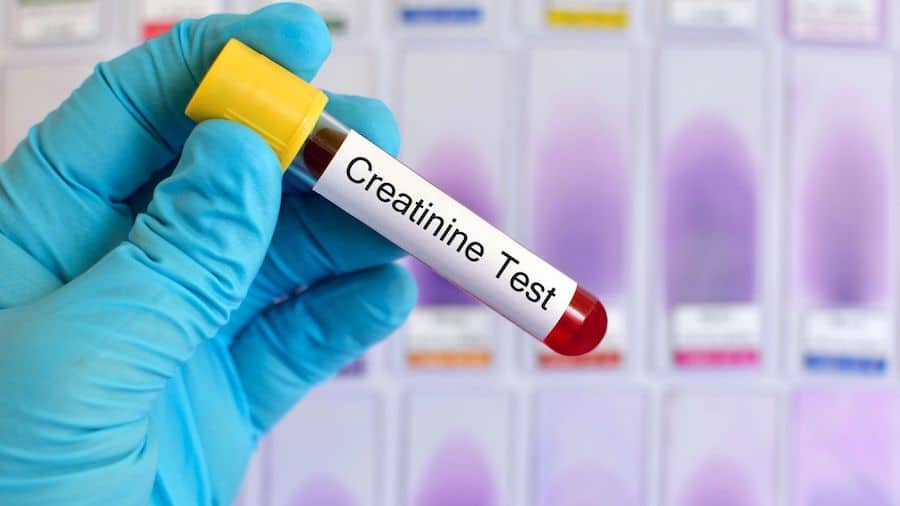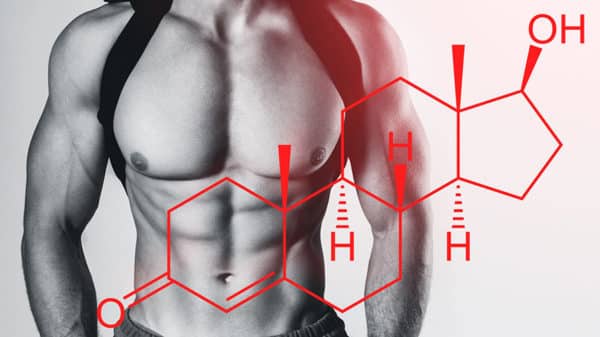Creatinine, a substance derived from the breakdown of creatine, is present in large quantities in the muscles. An abnormally high level of creatinine can be a sign of kidney dysfunction. In sportsmen and women, this can also have a completely different meaning. What is creatinine, what happens if the level is higher than usual and how to lower it, what to eat, I'll explain it to you right away.
What is creatinine?
First of all, it is important to make the difference between creatinine and creatine. It is very common for people to confuse the 2, whereas they are 2 distinct substances: one is useful to our muscles, the other is its residue. Manufactured by the liver, kidneys or pancreas, creatine is a protein that provides energy to the muscle fibres. Creatinine is the organic waste product of creatine. Transported by the blood, it will be filtered by the kidneys and will disappear in the urine.
What does the creatinine level indicate?
When your doctor orders a test that includes creatinine levels, it is often because he or she wants to check that your kidneys are functioning properly. If your kidneys are not able to perform their role as purifier of the body, then the level will be abnormal. To measure the creatinine level, the laboratory can use 2 methods to carry out what is called the urinary clearance:
- a blood test without having to fast;
- a 24-hour urine collection.
A normal urine creatinine clearance calculation varies :
- between 107 and 139 ml/min in men under 40 years of age;
- between 87 and 107 ml/min in women under 40 years of age.
In case of suspected kidney diseaseIn the case of a heart attack, further tests will be performed to confirm or refute the diagnosis.
What is the normal creatinine level?
The concentration of creatinine changes according to your muscle mass, but also according to your age, sex, weight, and musculature. Also, it will not be the same for an adult or a child, nor for a man or a woman. To give you an indication, here are the levels generally found:
- men, between 6 and 12 ml/g ;
- women and adolescents (10-14 years), between 4 and 10 ml/g ;
- children (4-10 years), between 3 and 8 ml/g.
Don't panic! Levels that appear abnormal at first glance can be perfectly normal in some cases. During a pregnancy for example, it is generally low, taking a contraceptive pill can create the opposite. And for a confirmed sportsman or after a very big physical effort, the rate can exceed the scales. This does not mean that you have a problem. Only a doctor can make a reliable diagnosis.
Creatinine in athletes
When I coach a studentI generally suggest a health check-up to be able to fully ensure the coaching. I therefore ask that no activity be practiced in the 48 hours preceding the analyses, so that they are not distorted. If you take your blood test just after your session, the levels will automatically be high. If you are working out, your creatinine level will be higher because :
- your muscles work harder so you naturally produce more;
- you are making an intense physical effort;
- your muscle mass is greater ;
- you eat more protein.
Possible factors for increased creatinine levels
If your creatinine level is high, your doctor will proceed by elimination to detect the origin of its abnormality.
Weight gain
Overweight and obesity are risk factors for the kidneys. Indeed, being overweight will require more effort and will slow down the performance of your internal mechanics. This is why it is always recommended to be careful with what you eat, to limit sugar, salts and fat. The same goes for alcohol and tobacco.
Taking medication
If you are taking antibiotics or anti-inflammatory drugs, your creatinine level may increase. The same is true if you are taking them excessively or chronically. Never self-medicate, as this can cause serious problems. Knowing your body does not make you a health professional.
Creatine and hypertension
High blood pressure is a cause of kidney failure. Over time, the vessels are damaged, the blood supply to important organs such as the kidneys decreases.
Diabetes and cholesterol
When the pancreas no longer produces enough insulin, glucose levels rise, causing diabetes. One of the possible consequences of this chronic disease is kidney failure. Cholesterol is not without consequences, either. If you develop it, you risk clogging your arteries and harming your kidneys.
Iodine and renal failure
Iodinated contrast media injected intravenously during an MRI, for example, can be toxic in some cases. Remember to inform your doctor if you know you are allergic.
Creatinine and fatigue
If you are overworked and your body is showing signs of fatigue, it is quite possible that your levels will rise. The same is true if you suffer from a muscle injury. Rest and a healthier lifestyle will help you rebalance your body.
How to lower your creatinine level naturally?
Adopting good habits can help you reduce your high creatinine levels naturally. First, drink plenty of fluids: 2 litres a day will help. During and after exercise, also remember to stay hydrated. Dehydration can be the reason for a high creatinine level. You can also consume natural diuretics such as sage or dandelion infusions.

Creatinine: the right foods
In terms of your diet, choose certain green vegetables that are low in potassium such as peppers, cucumbers, leeks and lettuce. Endives and onions are also very good. Add olive oil, lemon and fresh herbs like parsley to your dishes. Season with ginger or turmeric. As for fruits, choose seasonal fruits that will optimize the role of purifier of the kidneys, such as apples or pears, peaches, watermelon, etc.
Creatinine: the bad foods
Reduce your consumption of red meat, salt (which promotes water retention) and foods high in potassium (potatoes, coffee, etc.) or phosphorus (such as sardines or dairy products) which strain the kidneys. Also avoid ready-made meals, crisps and other snacks. People suffering from kidney failure should avoid certain foods such as avocados, tomatoes and oranges.
Things to remember :
- creatinine and creatine are two different things;
- As a regular athlete, your creatinine level will naturally be high within 48 hours of exercise;
- your lifestyle can influence your rate;
- If in doubt, always consult a doctor and keep him/her informed of your activities.









3 Comments
What is distressing is to have to explain it to the general practitioners...
Hi Alex,
I make the same observation, most doctors ignore the criteria of muscle mass when they evaluate creatinine and GFR, I was never told not to train before a blood test, either.
Without indiscretion, what do you shoot for creatinine? and GFR?
Hello,
There is an error in this guide, creatinine is expressed in mg/l, not ml/g.